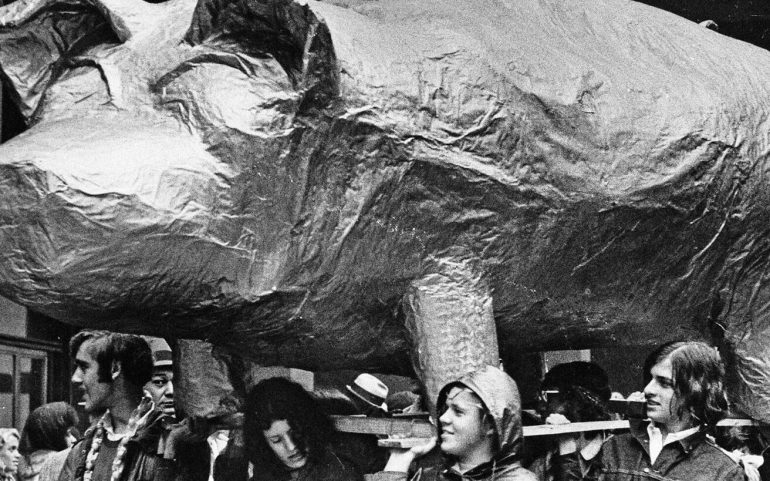Historic in every way, this trial was not just against America's best-known anti-war activists, but against the very right of the citizen to react.
We are in his vortex Vietnam War, with spirits sharpened and polarized to a new record high, when a portion of the youth begin to question American involvement in a battle far away.
The government wants to amuse the growing backlash, only reacting somewhat spasmodically: accusing a number of prominent members of the anti-war activist front of inciting unrest and conspiracy.
The mobilizations outside the Congress of Democrats in 1968, in an extremely turbulent period of American history, would lead 8 people to the dock.
What was at stake was not only their freedom, but also their right to disagree.
And things did not go well for everyone…
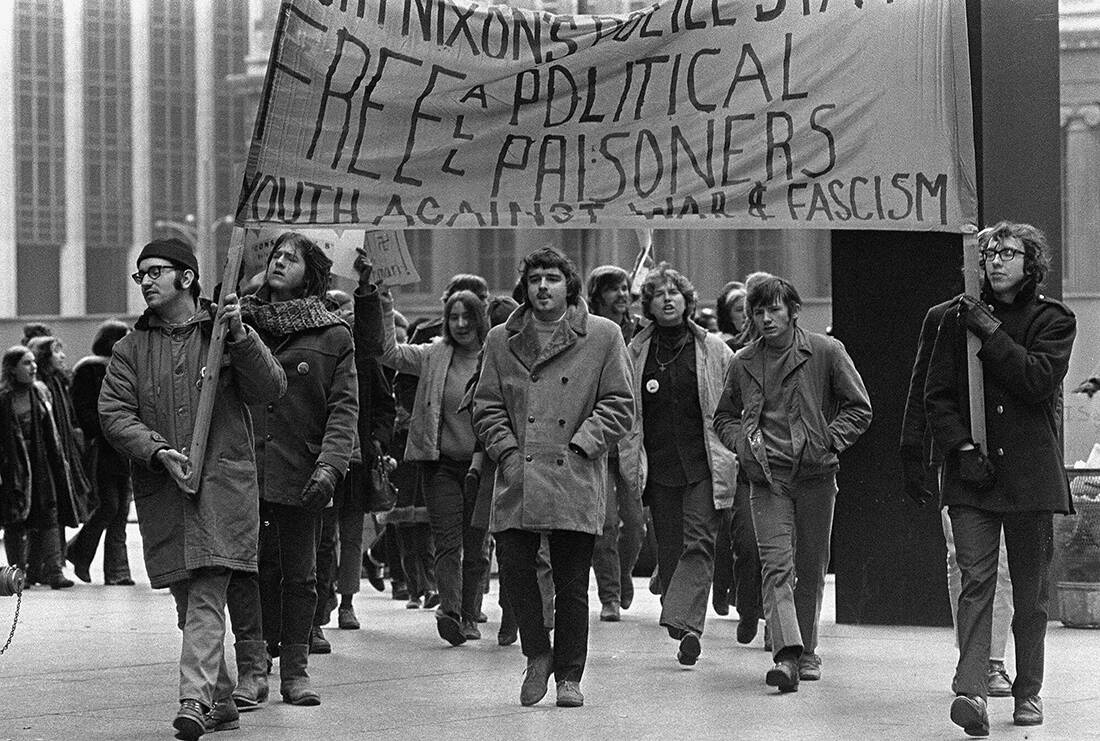
To understand the enormous impact of 60s political activism in the United States, one needs two drops of historical context. Kennedy was assassinated in 1963 and the leaders of another civil liberties movement, Malcolm X and Martin Luther King, Jr., were equally tragic in 1965 and 1968, respectively.
The Vietnam War, an unjust war for a portion of American public opinion, was raising the spirits even further. In 1966 Bobby Sill co-signed (with Hugh Newton) the creation of a political body that undertook to defend the African-American community from the arbitrariness of the police and the various injustices of the white system. They called them Black Panthers.
And of course it would not take long for the Vietnam War to leave its mark on these marginalized communities. Most activists could not understand how the government sought support from the black community for military action abroad at the same time as terrorizing and oppressing its slums at home.
This is exactly what both the Black Panthers of Sill and the anarcho-artistic Youth International Party (YIP), whose founders Abbie Hoffman and Jerry Rubin, openly pointed out the tragic absurdity.
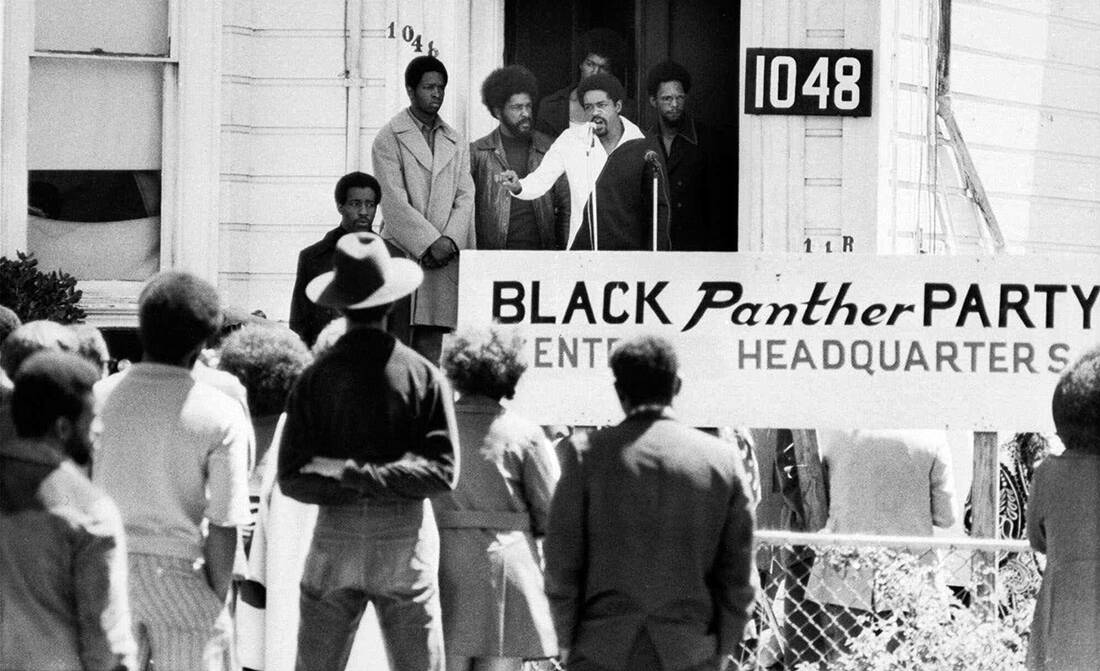
And they were not the only ones who ruined social injustice. The same was advocated by David Dellinger, chairman of the National Mobilization Committee to End War in Vietnam (MOBE), but also by Tom Hayden, head of the Students for a Democratic Society (SDS), who always had Rennie Davis by his side. people to get down on the street.
Together with the relentless activist John Froines and teacher Lee Weiner, they met in an Illinois town on March 23, 1968 to coordinate their activities. At their side were a few hundred more activist and youth organizations.
Despite being told "no", Rubin intended to take to the streets some 100.000 people at the Yippie Youth Festival.
Where; At the National Congress of Democrats of 1968. O. President Lyndon Johnson announced on March 31 that he would not run again and the Democrats had to find a successor.
Activists called for the new candidate to have anti-war sentiment and decided to intervene at a congress in Chicago to make their voices heard.
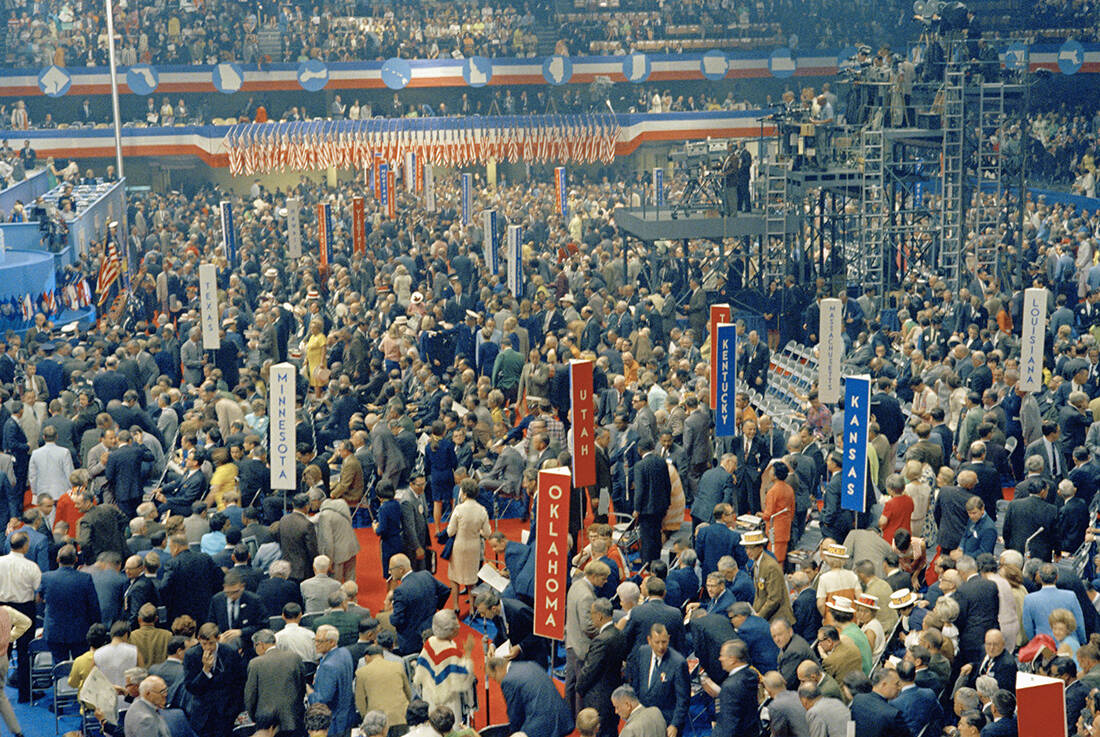
With Lyndon Johnson out of the picture, most of the anti-war movement saw no reason to continue their mobilizations. And then Vice President Hubert Humphrey, the president's sympathizer for the Vietnam War and one of his staunchest supporters, ran for the Democratic anointing.
April was already a "warm" month. In the demonstrations for his murder Martin Luther King, the mayor of Chicago gave the police the freedom to respond with bullets. And in June we had the assassination of the presidential candidate Robert Kennedy, reaching the polarization at the outlet.
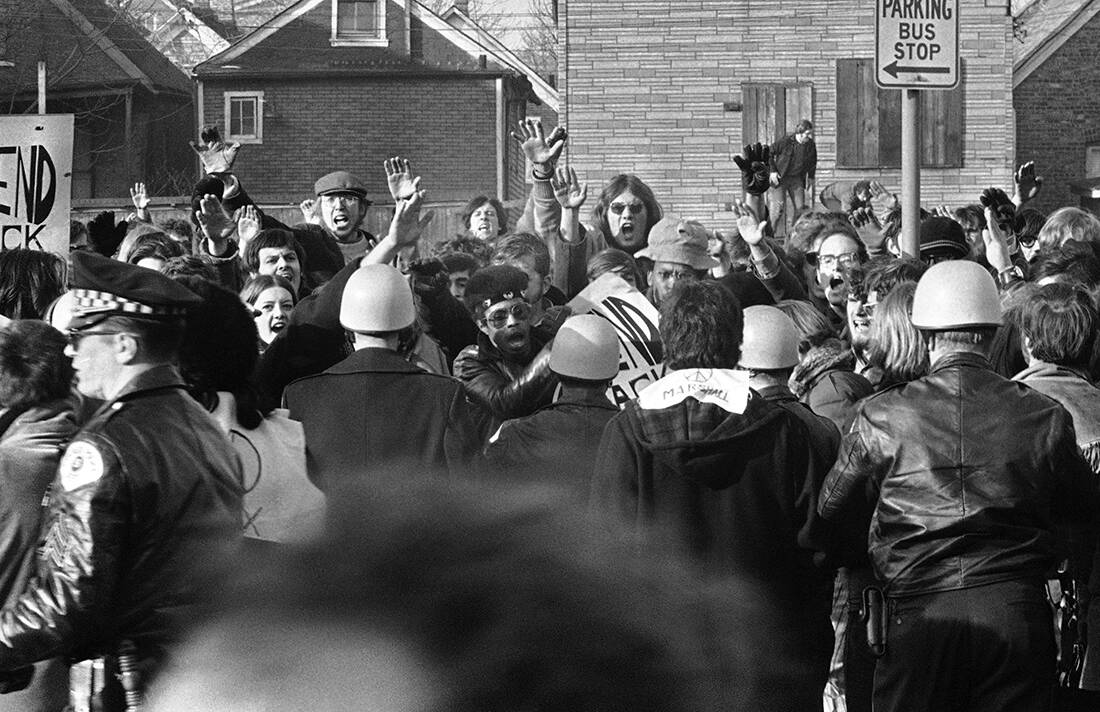
The Chicago It was a boiling cauldron, which is why the Democrats wanted to move the convention to Miami. In Chicago, telephone workers also went on strike, making it very difficult for communications and television coverage of the events.
However, Mayor Richard Daley assured that his city was ready to host the celebration of democracy. In the background, of course, he threatened to withdraw his support for Humphrey if the conference took place anywhere else.
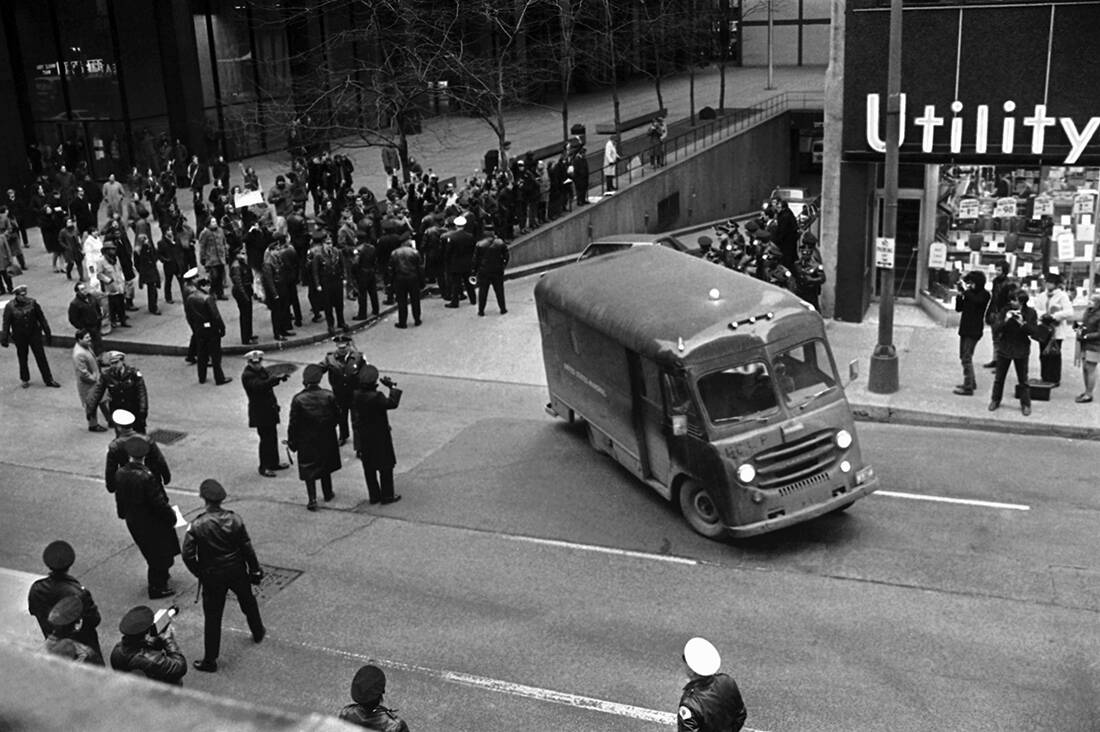
With the congress taking place between August 26-29, Humphrey felt very confident of victory, having secured far more voters than he needed for a comfortable victory. Only the anti-war pressure was growing within his party, a parameter he had not calculated.
The first riots outside the conference room took place on August 25. The protesters they were not discouraged by the ban on rallies outside the venue and gathered en masse to protest.
And they found a huge force of repression against them: 11.900 Chicago police, 7.500 soldiers, 7.500 Illinois militiamen and another 1.000 secret police agents were combing Chicago these days.
The worst riots took place on August 28 and we are now talking about a normal battle. Hundreds of protesters were violently beaten by police, as well as passers-by, journalists and even doctors who provided first aid to the injured. Police reports of arrests range between 589-650.
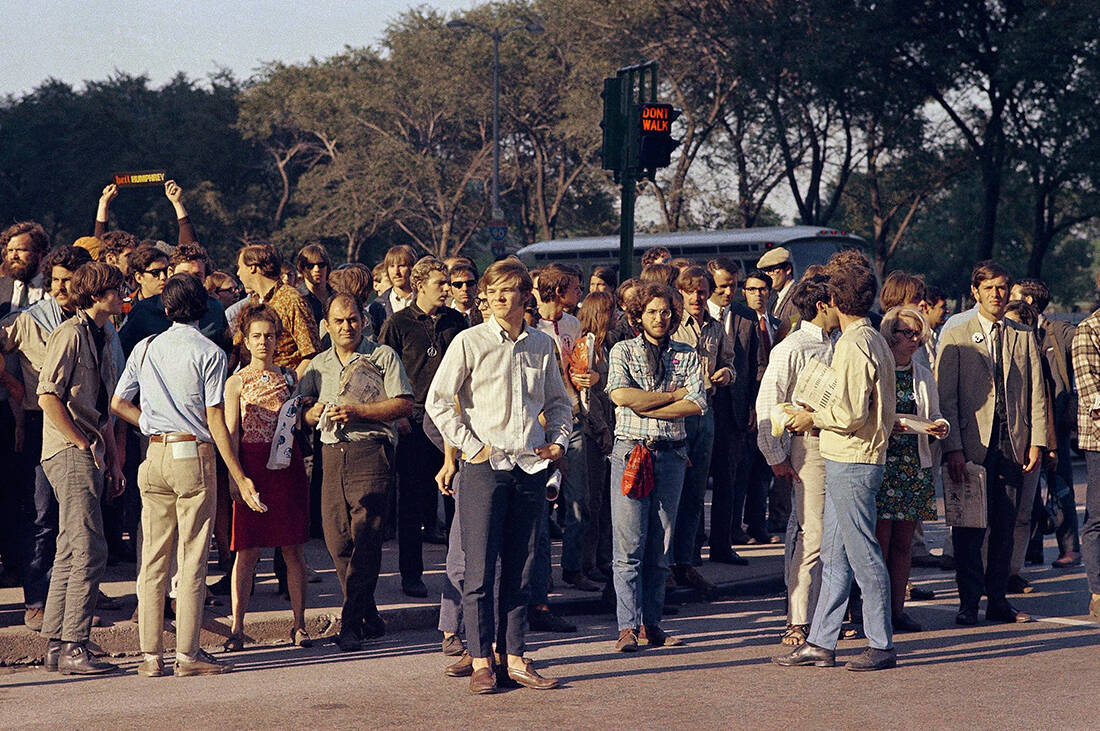
In this unprecedented savagery of the forces of law, with tear gas and globes turning even against journalists Covering the events and saying they were disgusted by the police brutality, the protagonists of the Chicago Sevens (Eight were originally, but Sill would eventually be judged alone) gave fiery speeches in the city.
The next stop was March 20, 1969, when 8 police officers and 8 civilians were officially charged with last year's riots. And unfortunately for the activist group, a new law in 1968 made it a federal crime to cross state borders to incite unrest.
And this is exactly what the Chicago Eight were accused of, which would soon become the Chicago Seven.
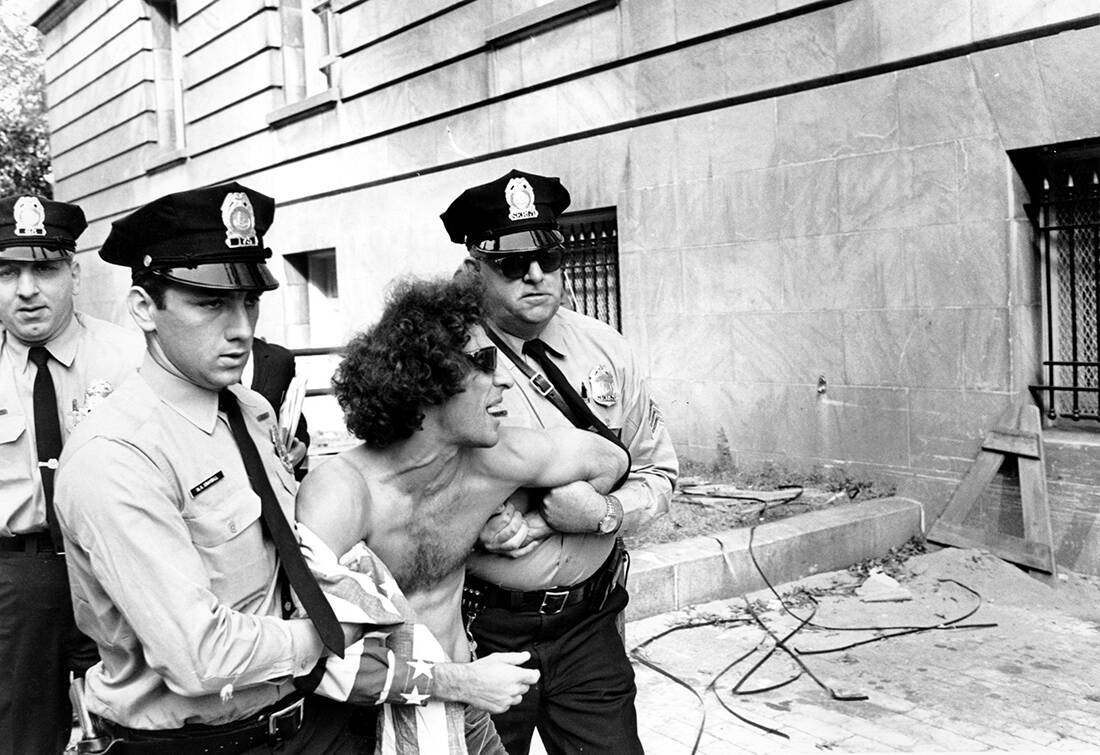
Dellinger was a clear target of the authorities, as the leader of the MOBE, as were Davis and Hayden, the heads of the SDS. As for Hoffman and Rubin, their own organization (YIP) represented a respectable percentage of the 1968 protesters. So somewhere they would be to blame, they can not.
Weiner and Froines were dragged to court simply for participating in the marches. For Bobby Sill, who took part in the mobilizations as a last minute replacement for another member of the Panthers, the trial looked like a bill that was time to be repaid…
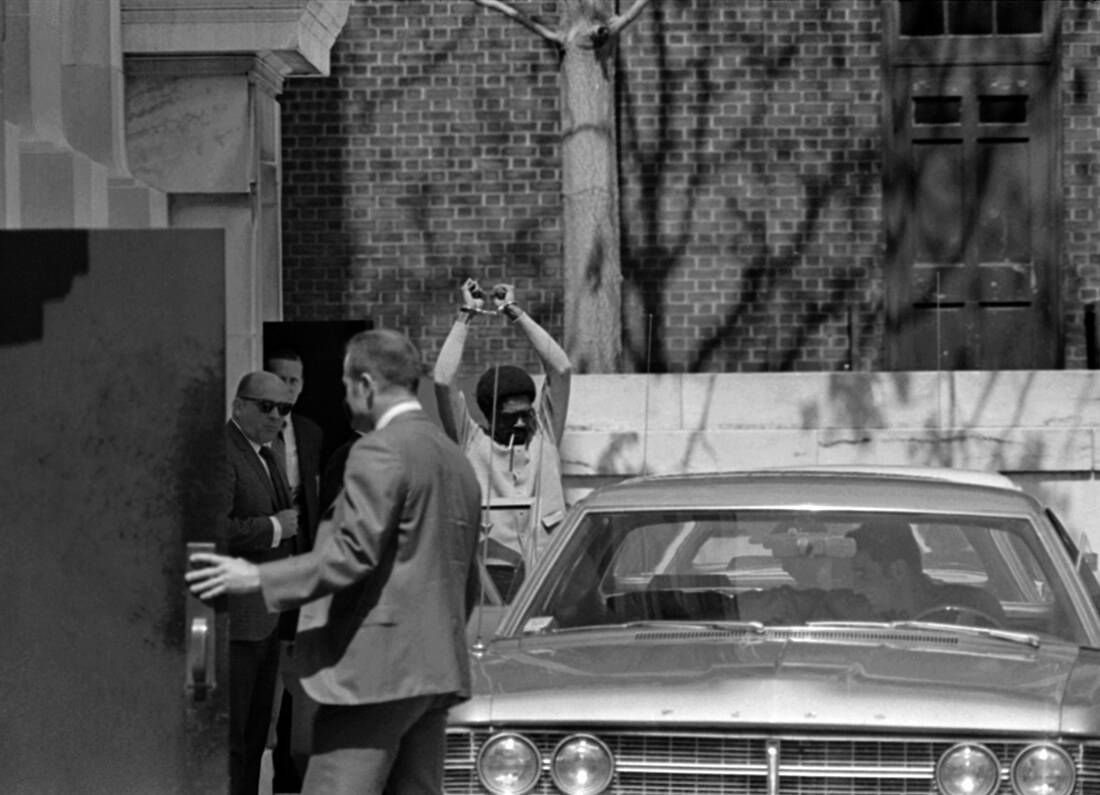
The hearing began on September 24, 1969, and despite Judge Julius Hoffman's appeals for calm and respect for the rules, the defendants openly mocked the proceedings. Indicative here is that at some point Jerry Rubin and Abbie Hoffman appeared in the courtroom wearing the court gown.
Hoffman ordered them to take it off and they did it willingly, as they were wearing police uniforms underneath! They considered that they were taking part in a trial-parody and treated it as a parody from the beginning.
And this "parody" was not accidental at all, as even the Attorney General of the Lyndon Johnson government, Ramsey Clark, refused to prosecute.
Abbie Hoffman called Judge "Julie" and swore with his middle finger raised. "We are not talking about justice," he said, but rather "the judge's views on justice." The Eight sometimes sang in dance and sometimes recited poetry, doing everything they could to stop the court.
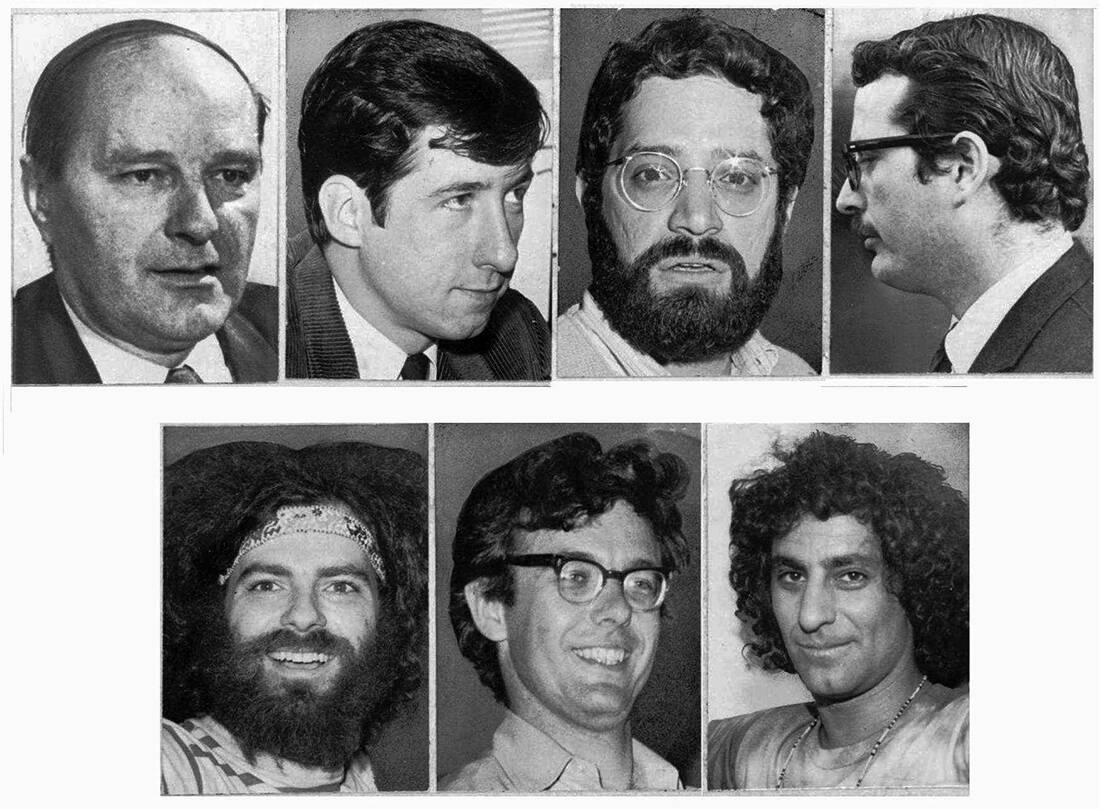
Only the trial was not room for everyone. For Sill, there were clear motives behind his persecution. As the man who had endorsed the founding of the Black Panthers, he has long been in the crosshairs of FBI. His own speech in court was both serious and mature.
And Judge Hoffman decided to silence him: he ordered that on October 29, 1968, he be tied up, gagged and immobilized in his chair.
"This is no longer a benevolent state court," said William Kunstler's lawyer, "this is a ward of medieval torture." Sill was the only black man among the eight defendants and after his lawyer's statement, the judge asked to be tried separately.
He had already been jailed for 48 months for 16 acts of disrespect in court!
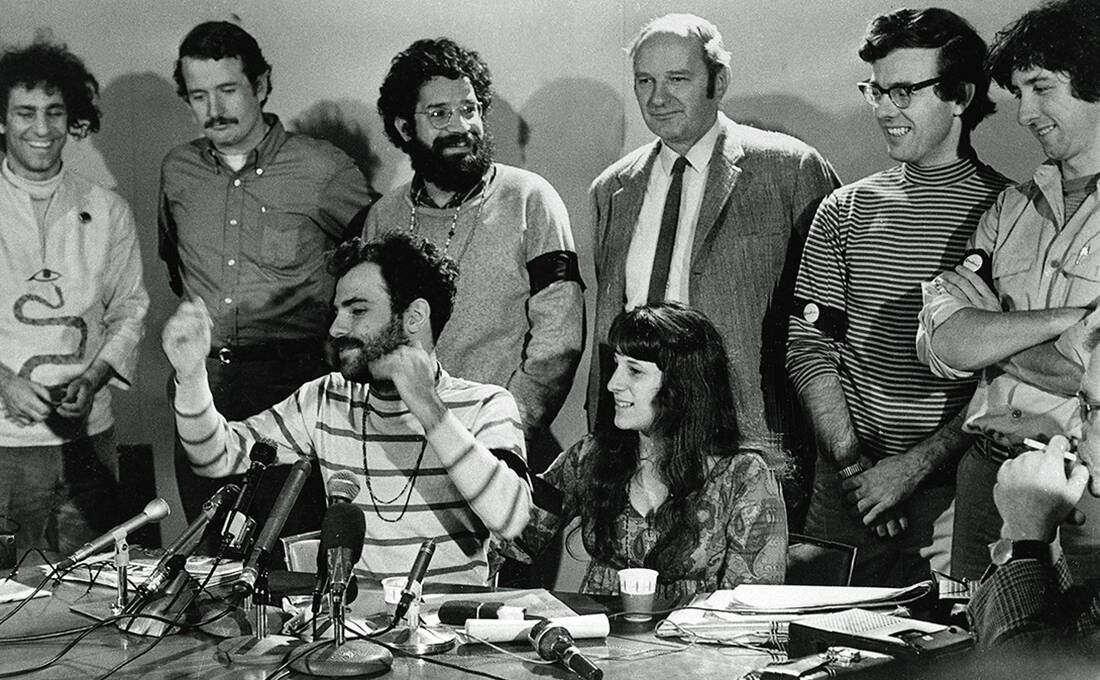
"You are the laughing stock of the world," Rubin told the judge. "Every young man in the world hates you because he knows what you stand for." You are synonymous with Adolf Hitler. "Adolf Hitler means Julius Hitler."
Sill's defense attorney, William Kunstler, took on the defense of the Seven and constantly spoke of the ill-treatment of the accused in the courtroom, calling the trial a "legal lynching".
Before the jury reached a verdict on February 18, 1970, the judge had sentenced all seven to prison terms (even 29 months for contempt of court).
But also to defense attorneys Kunstler and Leonard Weinglass. Kunstler, after that infamous "medieval torture chamber", left the trial with a sentence of 4 years in prison.
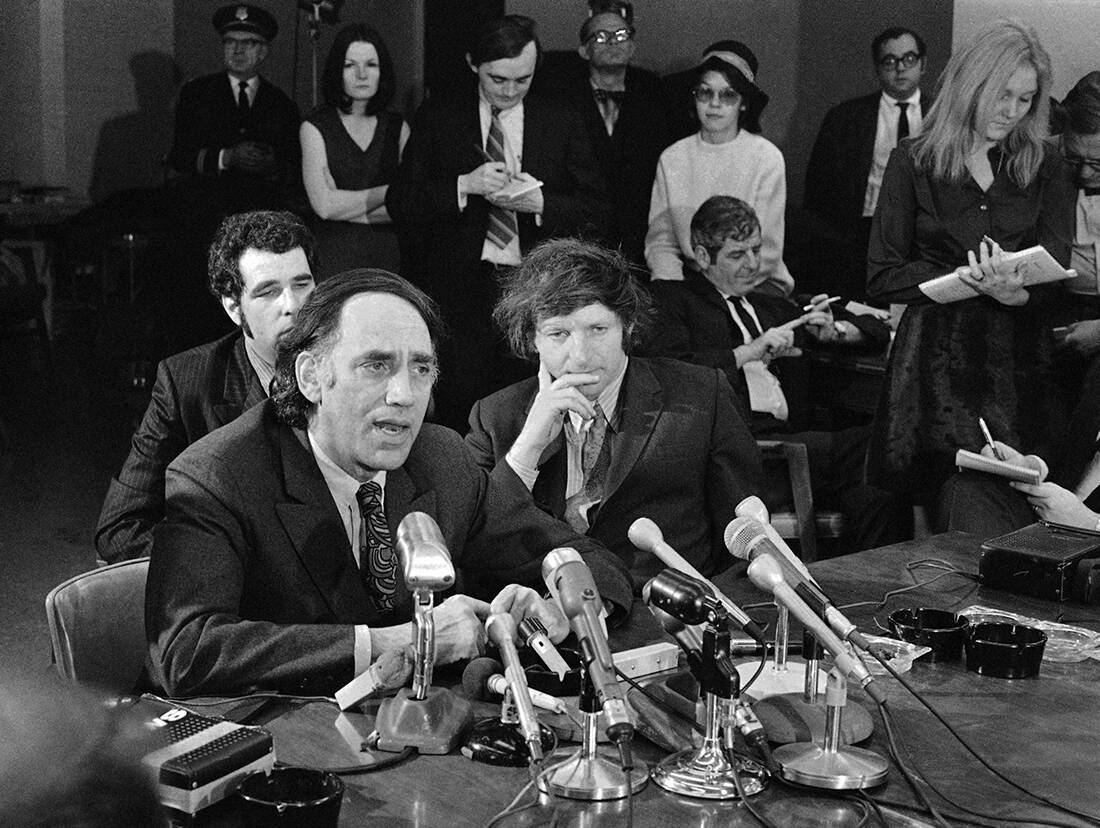
The jurors, however, did not have the same opinion. They acquitted Froines and Weiner, but the other five were not equally lucky.
Although they escaped the heaviest charges of conspiracy, they were found guilty of inciting violence. They ate for 5 years in prison and a $ 5.000 fine.
None of them, however, entered, as the November 1972 Court of Appeal acknowledged the punitive nature of the trial and Judge Hoffman's misconduct and acquitted them all. Withdrawing the penalties for disrespect.
The appeals court also found that during the trial, the FBI even monitored the telephone numbers of the defense attorneys' offices. The appellate court also acquitted the judge.
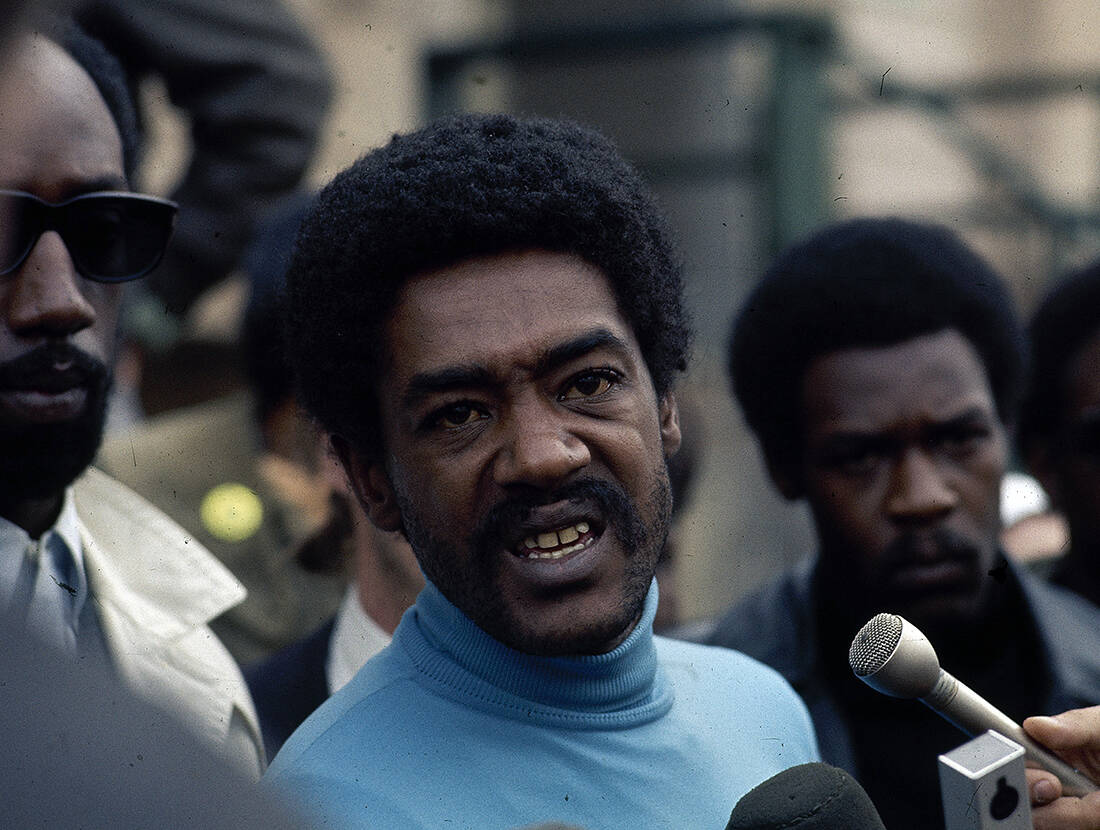
For the African-American and founder of the Black Panther Party, Bobby Sill, however, the four-year imprisonment for disrespect in court remained. He was the only one who would go to jail and it was clear that he was paying her for other reasons.
The Chicago Seven became symbols of resistance and continued their lives normally. Apart from Hoffman, who committed suicide in the 1980s, he did manage to write several books and inspire even more young people to fight for civil rights and social freedoms.
Hayden later became a politician, reaching the position of California senator. He was married to her Jane Fonda. Sill still lives and will remember all this better than anyone.
The story of the Chicago Seven still seems more like a product of fantasy than historical reality. That is why it may have the power to still provoke thoughts and reflections, despite the half century that has passed…
